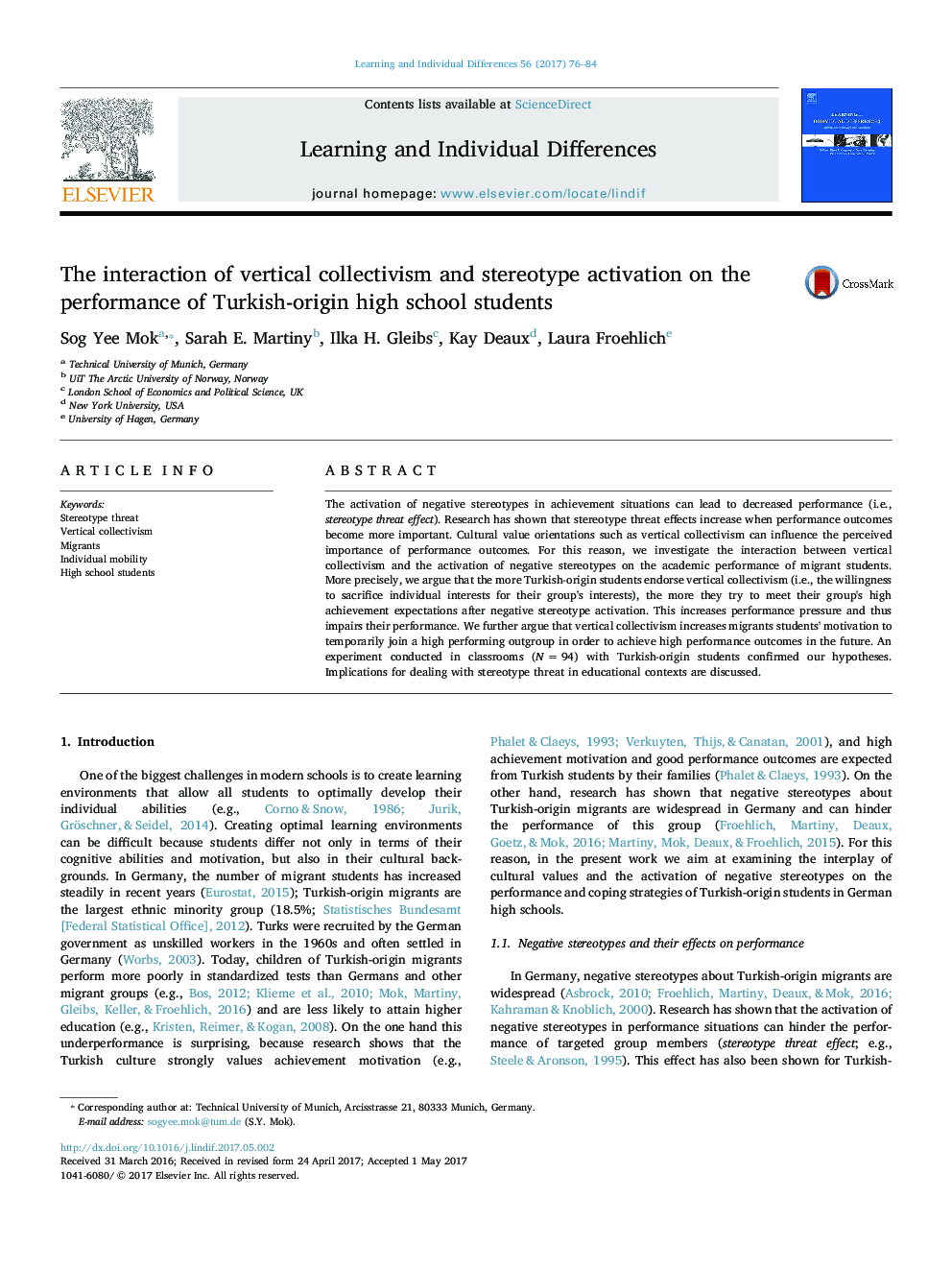| کد مقاله | کد نشریه | سال انتشار | مقاله انگلیسی | نسخه تمام متن |
|---|---|---|---|---|
| 4940044 | 1436367 | 2017 | 9 صفحه PDF | دانلود رایگان |
عنوان انگلیسی مقاله ISI
The interaction of vertical collectivism and stereotype activation on the performance of Turkish-origin high school students
ترجمه فارسی عنوان
تعامل جمع گرایی عمودی و فعال سازی کلیشه ای بر عملکرد دانش آموزان دبیرستانی ترکیه
دانلود مقاله + سفارش ترجمه
دانلود مقاله ISI انگلیسی
رایگان برای ایرانیان
کلمات کلیدی
موضوعات مرتبط
علوم انسانی و اجتماعی
روانشناسی
روانشناسی رشد و آموزشی
چکیده انگلیسی
The activation of negative stereotypes in achievement situations can lead to decreased performance (i.e., stereotype threat effect). Research has shown that stereotype threat effects increase when performance outcomes become more important. Cultural value orientations such as vertical collectivism can influence the perceived importance of performance outcomes. For this reason, we investigate the interaction between vertical collectivism and the activation of negative stereotypes on the academic performance of migrant students. More precisely, we argue that the more Turkish-origin students endorse vertical collectivism (i.e., the willingness to sacrifice individual interests for their group's interests), the more they try to meet their group's high achievement expectations after negative stereotype activation. This increases performance pressure and thus impairs their performance. We further argue that vertical collectivism increases migrants students' motivation to temporarily join a high performing outgroup in order to achieve high performance outcomes in the future. An experiment conducted in classrooms (NÂ =Â 94) with Turkish-origin students confirmed our hypotheses. Implications for dealing with stereotype threat in educational contexts are discussed.
ناشر
Database: Elsevier - ScienceDirect (ساینس دایرکت)
Journal: Learning and Individual Differences - Volume 56, May 2017, Pages 76-84
Journal: Learning and Individual Differences - Volume 56, May 2017, Pages 76-84
نویسندگان
Sog Yee Mok, Sarah E. Martiny, Ilka H. Gleibs, Kay Deaux, Laura Froehlich,
